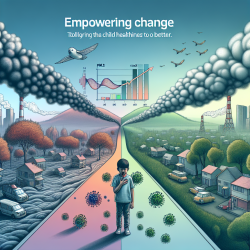In a rapidly diversifying world, educators and therapists must adapt to meet the needs of all students, especially those from historically marginalized communities. A recent research article, "Culturally relevant/responsive and sustaining pedagogies in science education: theoretical perspectives and curriculum implications," provides valuable insights into creating more inclusive educational environments. Here, we explore how practitioners in online therapy can apply these principles to enhance their services for schools.
The Core Principles of Culturally Relevant Pedagogies
The research underscores the importance of culturally relevant, responsive, and sustaining pedagogies (CR-SP) in education. These pedagogies aim to:
- Center the experiences and voices of marginalized students.
- Value and incorporate diverse cultural backgrounds into the curriculum.
- Promote social justice and equity in education.
Application in Online Therapy
Online therapy for schools can benefit significantly from integrating CR-SP principles. Here are some practical steps for therapists:
1. Understand the Cultural Context
Therapists should make an effort to understand the cultural backgrounds of their students. This involves learning about their communities, values, and experiences. Such understanding can help in creating a more empathetic and effective therapeutic environment.
2. Incorporate Cultural Relevance in Therapy
Therapy sessions should reflect the cultural contexts of the students. This can be achieved by:
- Using culturally relevant examples and materials.
- Encouraging students to share their cultural experiences and stories.
- Respecting and validating the students' cultural identities.
3. Foster a Sense of Belonging
A critical aspect of CR-SP is fostering a sense of belonging among students. Therapists can create inclusive spaces where students feel seen and heard. This can be done by:
- Building strong, trusting relationships with students.
- Creating a safe space for students to express their identities.
- Encouraging collaborative and participatory approaches in therapy.
4. Promote Social Justice
Therapists should be aware of the systemic barriers that marginalized students face and work towards promoting social justice. This involves:
- Advocating for equitable access to resources and support.
- Challenging discriminatory practices within the educational system.
- Empowering students to become agents of change in their communities.
Encouraging Further Research
Practitioners should not only implement these principles but also engage in continuous learning and research. Staying updated with the latest research and participating in professional development opportunities can enhance their ability to serve diverse student populations effectively.
Conclusion
Implementing culturally relevant, responsive, and sustaining pedagogies in online therapy can significantly improve the educational experiences of marginalized students. By understanding cultural contexts, incorporating cultural relevance, fostering a sense of belonging, and promoting social justice, therapists can create more inclusive and effective therapeutic environments.To read the original research paper, please follow this link:
Culturally relevant/responsive and sustaining pedagogies in science education: theoretical perspectives and curriculum implications.










